by Elizabeth Hughes, Senior Director of Insight RegionTM
Insight Region recently released its first research brief, Unequal Burden, which highlighted the state of housing affordability in Northern Virginia. The brief and the release event that we held on January 13th (watch here) have generated a lot of questions about how we move forward as a region.
In this post, I am joined by my colleague Michelle Krocker (MK) from the Northern Virginia Affordable Housing Alliance to begin to answer some of those questions. Please check back as we continue to update this page with more responses.
What opportunities exist to preserve and rehabilitate market-rate affordable housing?
MK: This is the greatest challenge in our region – preserving what we have. One of the most effective tools is density bonus to replace existing units in a redevelopment scenario and to add market-rate housing to create a mixed-income community. NVAHA released a comprehensive study of preservation options in 2019, which you can find here.
Could ADUs (Accessory Dwelling Units) help alleviate shelter poverty?
MK: ADUs can increase housing supply for small households (1-3 persons), but so far, too few have been built to do a meaningful analysis of their impact.
What is Amazon’s Housing Equity Fund and how might it impact housing in the region?
MK: Amazon recently launched a Housing Equity Fund that provides $2 billion across three corporate hubs (Arlington, Nashville, and the Puget Sound region of Washington state) to preserve market affordable housing. They financed the acquisition of Crystal House in Crystal City – over 700 units of market-affordable housing to be preserved for 40 years.
What can we learn from other jurisdictions?
EH: The Bloomberg City Lab published an article in 2019 that discusses the role of housing affordability in a region’s economic growth, and points to a number of international examples of how cities are innovating around housing affordability.
How do we move from the "we versus them" to the "we will solve" approach to housing issues?
MK: Dr. Tiffany Manuel at TheCaseMade has done extensive research on the topic of how we discuss the community benefits of housing affordability.
Why does your report show very high rates of housing burden in traditionally higher-income locations (such as North Arlington and McLean), when other reports on the topic suggest the opposite?
EH: Housing burden is highly, highly associated with income, so much so that neighborhoods (and regions) may look relatively affordable simply because they have a concentration of higher-income residents who typically do not struggle with housing costs. To combat this issue, the Insight Region report looked at rates of housing burden specifically among low and moderate-income households, which reveals a somewhat different, “surprising” set of high-need locations. We are not the first to examine housing burden by poverty status or income level (see University of Wisconsin’s Institute for Research on Poverty and the Government Accountability Office), but we are the first to my knowledge to examine these data locally and to rank metropolitan areas. Note that my definition of “low-income” is based on a household’s percent of federal poverty, which takes into account household size and composition but is not adjusted for area median income.
The report highlights a number of low-wage occupations that experience very high rates of housing burden. Would a federal increase in minimum wage help?
EH: The University of Washington Self-Sufficiency standard estimates that a family with children needs approximately $90,000 to “make ends meet” in Northern Virginia, or around $21 per hour if there are two adults working full-time; the United for ALICE estimate of $75,000 annual income equates to ~$18 per hour, again assuming two working adults. Double those rates, and single parents and other families with only one earner would need to earn $36-42 per hour just to maintain a basic standard of living for their families. A singleton with no children needs around $40,000 per year or $19 per hour.
Have a burning question that you think others might want to be answered, too? Email me at This email address is being protected from spambots. You need JavaScript enabled to view it..


 Questions?
Questions? Questions?
Questions?




